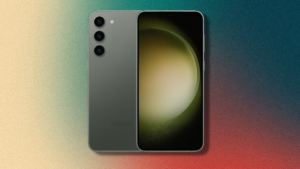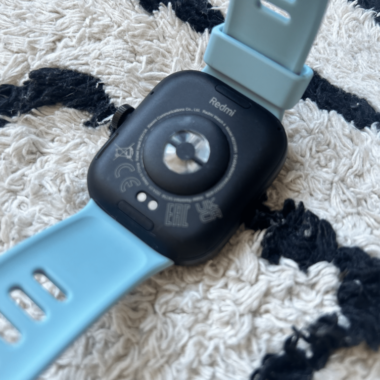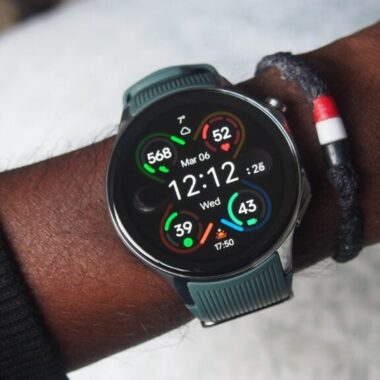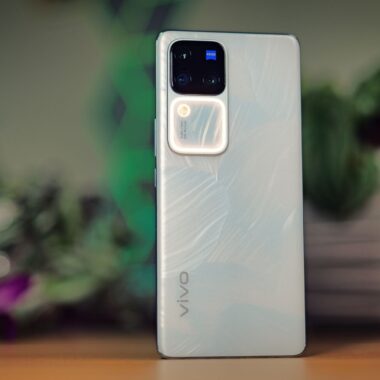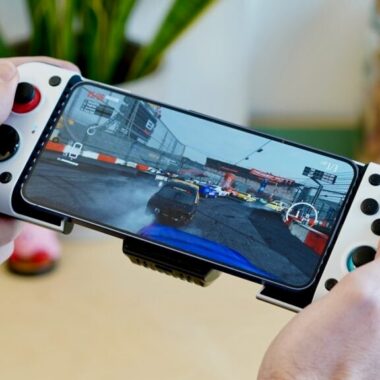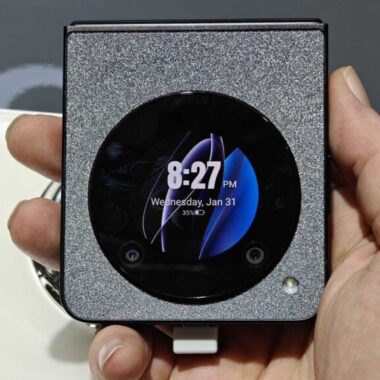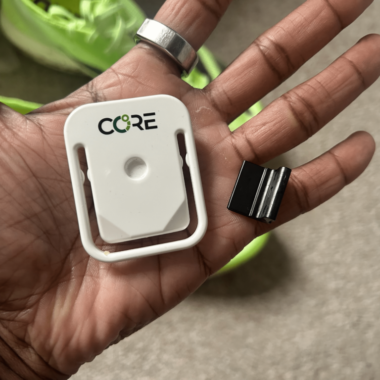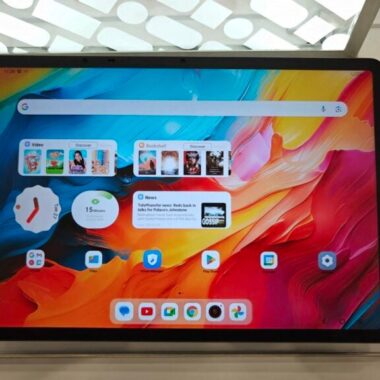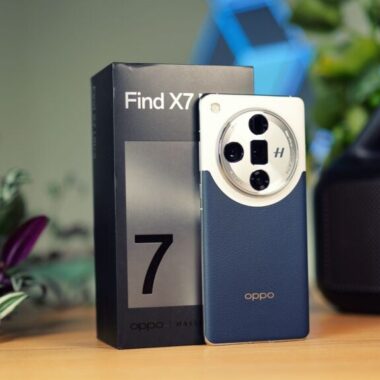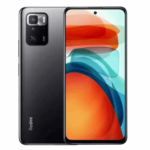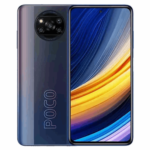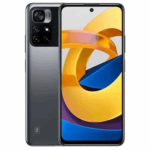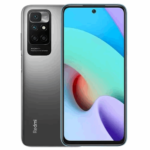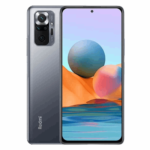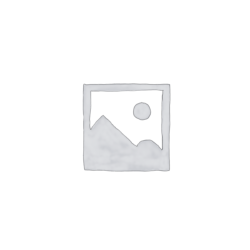Verdict
The Turtle Beach Atom is a solid option for those mobile gamers that demand a Bluetooth connection, as well as for anyone looking for full-sized controls with maximum portability. However, it doesn’t offer quite such a premium gaming experience as the best in the business.
Pros
- Bluetooth connectivity means wider game compatibility
- Ergonomic design
- Clever portable design
Cons
- Clunky sticky pad mounting system
- Bluetooth means no pass-through charging or wired headphones
- Controls not as premium-feeling as top rivals
Key Features
-
Unique portabilityDespite offering full-sized gaming controls, the Atom stashes away extremely neatly when not in use. -
Bluetooth rather than USB-CWhile USB-C has its clear advantages, Bluetooth opens up native compatibility with games like CoD Mobile and Genshin Impact. -
Custom appThe Turtle Bay Atom app is free to download, and lets you tweak analogue dead zones and responsiveness, among other things.
Introduction
After establishing a name for itself making sound cards in the late ’80s and ’90s, American brand Turtle Beach transitioned to making keenly priced gaming headsets in the noughties. Now with the Atom, the brand has decided to tackle the mobile game controller space.
The Turtle Beach Atom steers away from the recent trend for USB-C mobile game controllers, the best examples of which include the Backbone One and the GameSir G8 Galileo. Instead, it focuses on good old Bluetooth connectivity.
Despite using this more universal connection standard (though USB-C is well on its way to a similar status now that Apple is fully on board), there are two distinct models available – one for Android and another for iPhone. I’ve been testing the latter.
At a price of £69.99, it isn’t exactly what you’d call cheap, but it does cost less than both of those aforementioned premium rivals (which cost £99.99 and £79.99 respectively). Can the Turtle Beach Atom undercut them on quality too?
Design
- Unique two-part clamp design
- Less-than-premium sticky pad fit system
- No phone charging or 3.5mm headphone provision
I’ll grant Turtle Bay this: it has certainly thought outside the box with the Atom’s design. Rather than the usual clamp system, which expands and contracts to hold the phone in a landscape orientation, the Atom is made up of two distinct parts that connect and sync with one another via a proprietary 2.4 GHz wireless link.
The left and right portions still hold onto the relevant portions of the phone, but through independent vertical clamps. It works, though there’s an undeniable amount of wiggle and flex even when my iPhone 15 Pro is snugly installed.
However, I didn’t miss that small moment of dread whenever installing a phone into a USB-C controller, where you fear a catapulting catastrophe or a deep scratch from a misaligned jack.
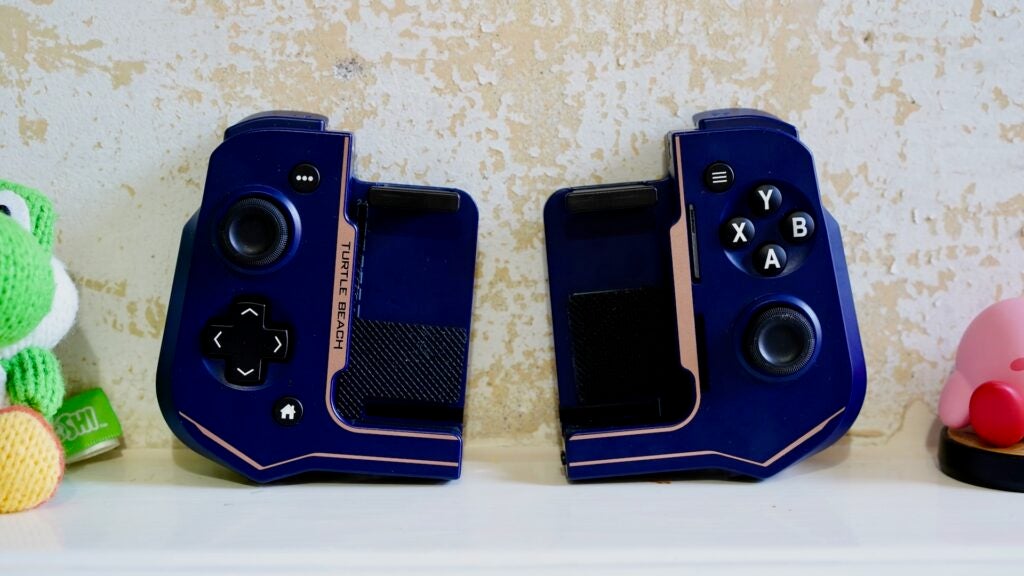

One thing I’m most certainly not a fan of is Turtle Bay’s approach to securing a custom fit. While the Backbone One goes with a clever (if initially fiddly) magnetised interchangeable padding system, the Atom gives you a couple of sizes of sticky pads that adhere to points on the pad. Apparently, it’s suitable for the iPhone 11 and later.
It feels slightly naff, and it seems clear its adhesive powers will ultimately fade. That’s fine if you intend to use this with a single phone for several years to come, but might pose a problem if you change your phone often.
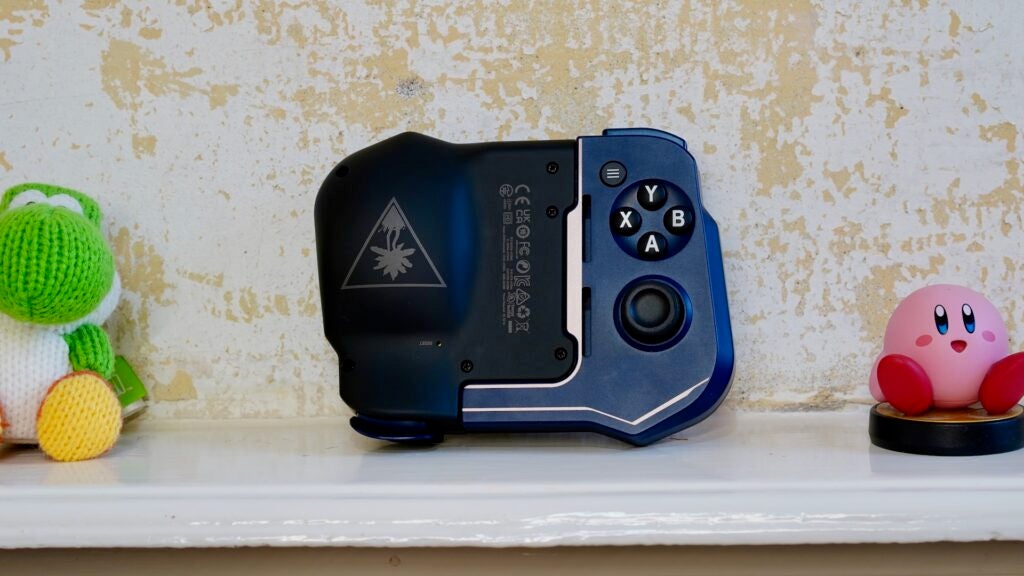

Strangely enough, my favourite part of the Turtle Beach Atom’s unique design is only apparent when you’re not using it. The two parts can be flipped around on opposing orientations, where they then slot together via magnetic ports, with those vertical plastic clamps doubling as rails.
In this configuration, the Atom becomes way more portable than its all-in-one rivals. It also enables you to charge both halves together with the single USB-C port that sits on the bottom edge of the left half. There’s a solid 20 hours of battery life here, so it’ll be good for a full week of two or three-hour gaming sessions, and a full recharge takes 2.5 hours.
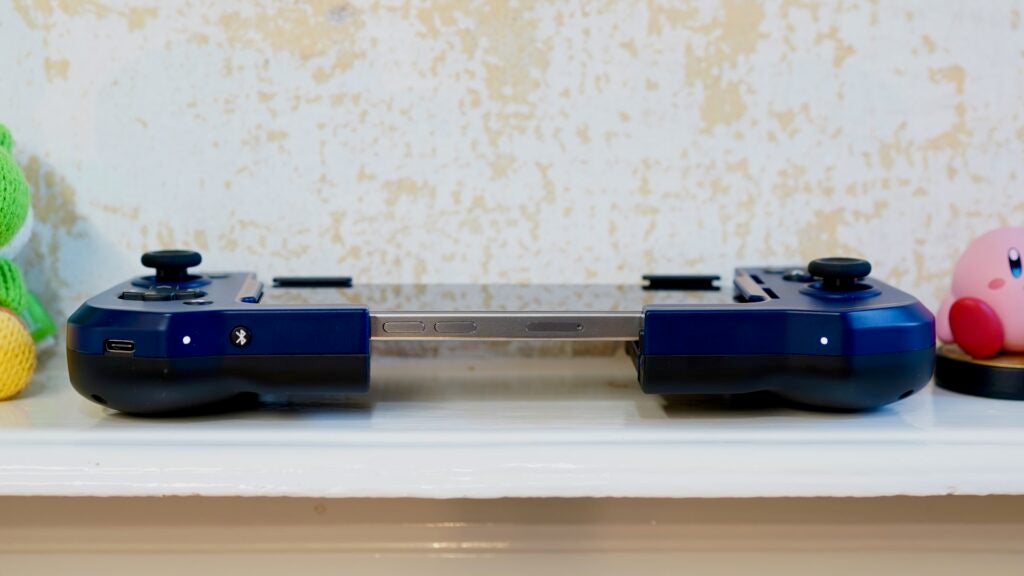

The controls need only a cursory mention, with a classic full-sized console controller layout comprised of twin analogue sticks, four should buttons, two of which are analogue, four fascia buttons, a D-pad, and three smaller menu/navigation buttons dotted around in the free spaces.
The design is very ergonomic, at least for someone with large hands. It sits in the palms nicely, with solid ledges to rest your middle fingers on and a pleasingly tactile soft-touch finish to the rear. Overall, though, it doesn’t quite have the ‘first-party controller’ solidity of the GameSir G8 Galileo or the Backbone One.
Performance and gaming experience
- Bluetooth provides wider mobile game support
- Solid, if not premium, full-sized controls
- No pass-through phone charging or wired headphones support
Bluetooth rather than USB-C connectivity has its positives and its negatives. On the plus side, Bluetooth over USB-C means wider game compatibility. The likes of Genshin Impact and Call of Duty Mobile (to name the two most high-profile examples) don’t officially support USB-C controllers, but they do support Bluetooth.
USB-C controller manufacturers like GameSir have worked around this with elaborate touchscreen translation mappings, but both of those huge games work seamlessly and natively here.
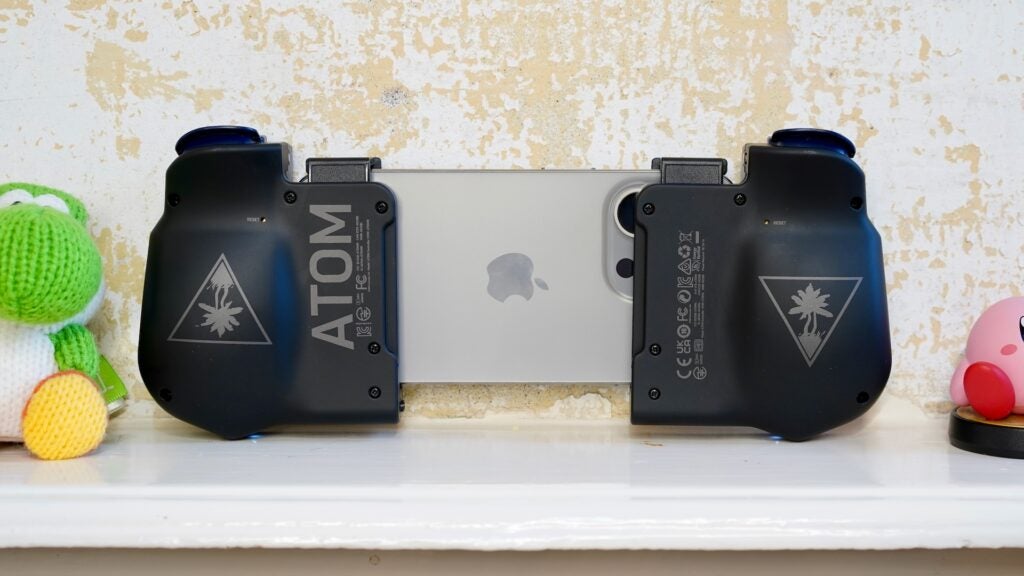

On the negative side, there’s simply no beating the directness of a USB-C connection. It’s the only way to guarantee connection stability and low latency.
I should note that I didn’t experience any such connection issues during my time with the Turtle Bay Atom, but there’s no getting away from physics. A USB-C is simply a better medium when it comes to the pure gaming experience.
Then there’s the decidedly non-gamer-friendly fact that you can’t charge your phone while you’re playing with the Atom, as there’s obviously no USB-C passthrough option. With the rear completely unobstructed, there’s a chance you could fit a MagSafe charger onto the back of your iPhone while playing, but I didn’t have one to hand to test that out. Plus, it’s not much help to Android gamers until those first Qi2-supporting phones start to arrive.
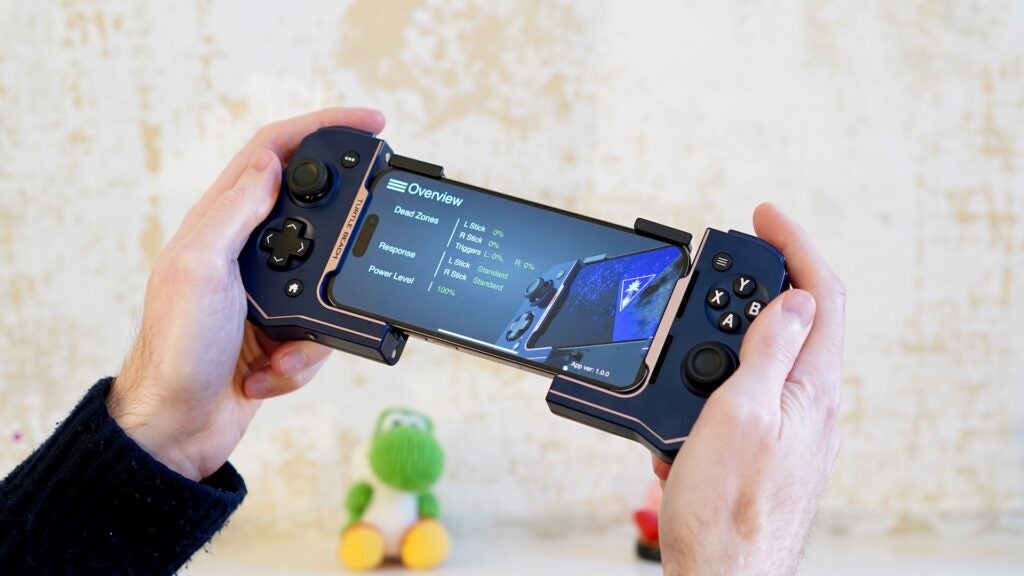

You also don’t get a 3.5mm headphone hook-up, which makes getting low-latency sound far more problematic.
As for the actual quality of those controls when gaming, they’re perfectly solid, but far from the best. The analogue sticks beat the Backbone One on size, but not quality feel, while the GameSir G8 Galileo and its Hall Effect sticks blow it out of the water.
The D-pad feels slightly spongier than I would like, but it passes the Dead Cells test with flying colours. In other words, it’s reliable and responsive even in the most fluid 2D action-platformer on the block.
Software
- Free dedicated Turtle Bay Atom app
- Lets you tweak analogue dead zones and responsiveness
- Basic shortcuts to streaming apps and compatible games
As is typically the case with these modern mobile controllers, there’s a dedicated Turtle Bay Atom app for the controller, and it’s free to download and use.
It’s nowhere near the thing of polished beauty that is the Backbone UI, but nor is it the jumbled mess of the GameSir app. Instead, it’s a rather drab but functional app that offers the ability to tweak analogue control dead zones and responsiveness, as well as to check on the remaining battery life (in percentage and estimated hours) and check for new firmware.
The app also offers a Game Discovery section, which is functional if slightly undercooked. It’s weird that you can’t navigate it with the gaming controls, and it manifests as a scrolling jumble of apps and services.
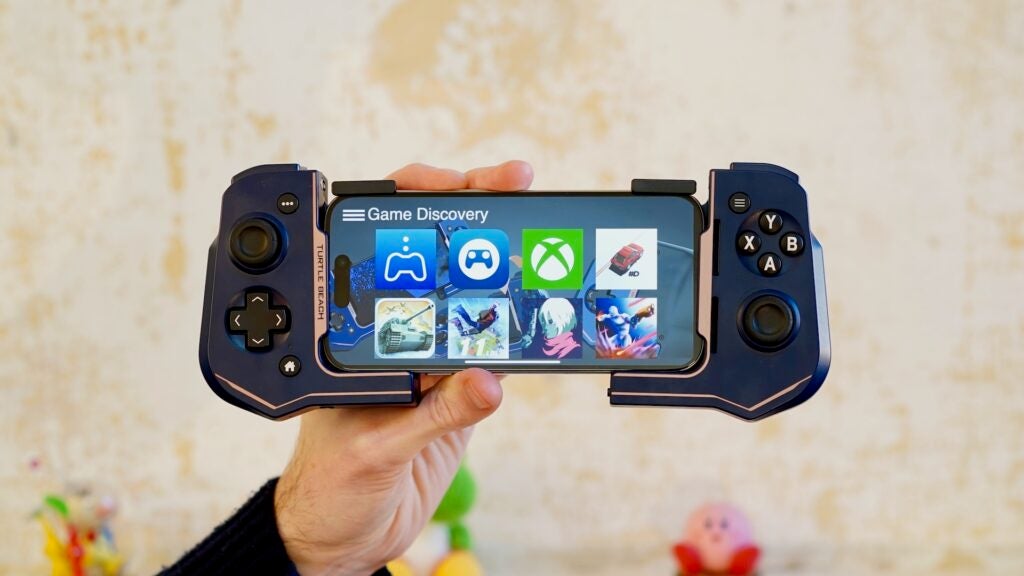

Look closer, and there is some form of order here. It starts with three major streaming services: PlayStation Remote Play, Steam Link, and Xbox Cloud Gaming. To be clear, this is nothing more sophisticated than a link to the relevant app listing on the App Store.
The rest of the icons are given over to a straightforward list of recommended games and apps (there’s an aim-training app in there), listed in alphabetical order. Tapping on those takes you to – you guessed it – the app listing, even if it’s already installed on your phone.
There’s no provision for launching your installed apps, as other game controller apps provide, so this is unlikely to be your go-to gaming portal.
As a way to quickly sift through games that will be compatible with the Atom, it’s handy, but it’s all handled in a slightly slapdash manner.
Should you buy it?
You want full-sized controls in a portable format
The Turtle Beach Atom offers full-sized controls for your phone, but is one of the most compact controllers around when not in use.
You change your phone often
If you’re someone who changes their phone often for whatever reason, the Atom’s basic sticky-pad custom fit system will prove unsuitable.
Final Thoughts
The Turtle Beach Atom offers a unique proposition – a full-sized mobile game controller that offers Bluetooth rather than USB-C connectivity, and compacts down into an extremely portable package when not in use.
Using Bluetooth comes with its advantages and disadvantages. You’ll get wider game compatibility and a slightly simpler fitting system than USB-C, but no pass-through charging or wired headphones. Latency and reliability, as good as it is, will never be quite as good either.
The gaming controls themselves are decent, but they can’t match the likes of the GameSir G8 Galileo for sheer fit and finish. The ergonomics are good, though.
All in all, the Turtle Beach Atom wouldn’t be our top pick for a mobile or streaming game controller. But if you demand a unit that folds away neatly for travel, and particularly if you play CoD Mobile or Genshin Impact, it’s a more-than-viable option.
FAQs
It supports smartphones with depths between 67-92mm, and heights of 6-10.5mm, so any case within those parameters should be fine.
There are two versions available, covering iOS and Android. This review model will work with the iPhone 11 and later.
No, there is no pass-through charging option here.


